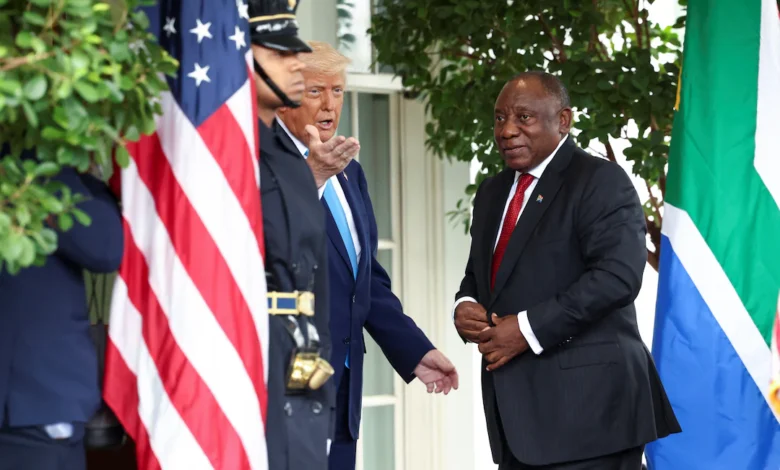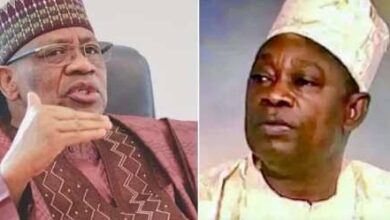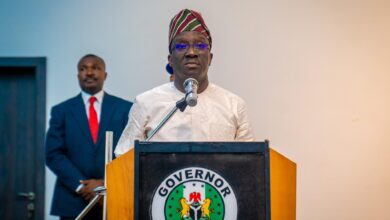Trump Considers Skipping G20 Summit, Slams South Africa’s ‘Very Bad’ Policies

United States President Donald Trump has indicated he may not attend the upcoming G20 summit scheduled to take place in South Africa this November, citing his disapproval of the country’s policies.
Trump’s remarks come amid a deepening strain in U.S.–South Africa relations, fueled by long-standing disagreements over a range of issues including South Africa’s land reform laws, its pro-Palestinian stance in the Israel–Gaza conflict, and its growing alignment with BRICS nations.
These tensions have prompted the Trump administration to impose multiple sanctions on South Africa, including a 30% tariff on selected South African goods, a move that has further deteriorated bilateral relations.
Speaking to reporters aboard Air Force One, Trump said, “I think maybe I’ll send somebody else because I’ve had a lot of problems with South Africa. They have some very bad policies.”
South African officials have yet to issue a formal response to the statement. However, analysts warn that Trump’s comments could escalate diplomatic friction ahead of the summit, which many see as a pivotal opportunity for developing countries to press for more inclusive global governance.
Trump’s policy dispute with South Africa
Since the start of his second term in 2025, U.S. President Donald Trump has intensified tensions with South Africa, reviving a diplomatic chill driven by ideological rifts and competing global alliances.
His administration has openly criticized South Africa’s growing ties with Russia and China, its opposition to Western foreign policy, and its leadership role in BRICS and the Global South.
The strain deepened earlier this year when US Secretary of State, Senator Marco Rubio declined an invitation to a G20 preparatory meeting in Johannesburg, citing South Africa’s alignment with anti-Western regimes.
Soon after, the White House instructed the U.S. Embassy in Pretoria to avoid making logistical arrangements for the G20 summit, signaling a potential boycott unless South Africa altered its stance.
The friction reflects Washington’s broader frustration with Pretoria’s increasingly independent foreign policy, including support for Palestine, resistance to U.S.-backed sanctions, and its decision to host Russian President Vladimir Putin despite an ICC warrant.
With the G20 summit now in focus, Trump’s administration sees South Africa as part of a rising bloc challenging U.S. influence. What began as diplomatic friction has grown into a full-blown policy standoff that could redefine U.S.–Africa relations for years to come.
Trump’s potential absence from the summit could have diplomatic implications, as it would mark a rare snub of a major global economic forum hosted on African soil.
While it remains unclear who might represent the U.S. in his stead, the comment signals continued discomfort within the Trump administration over South Africa’s geopolitical alignments and domestic choices.
BUSINESS INSIDER





